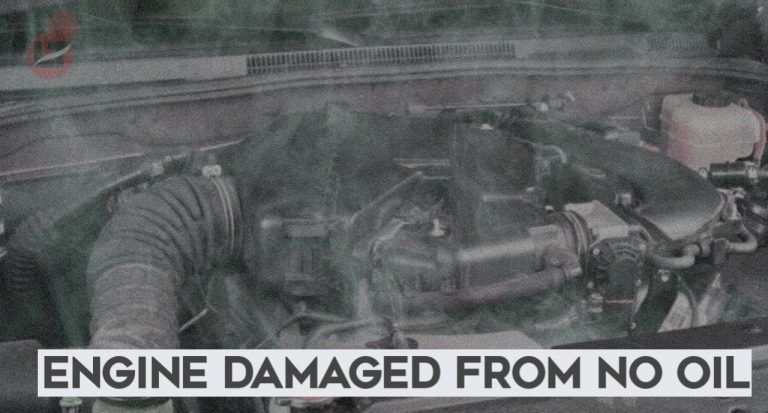Many factors can cause damage to a car Engine, but how do you tell if an engine is damaged due to no oil?
It’s not new that a lack of oil flow to the engine component increases friction among the system’s moving parts and causes a knock.
Likewise, coolants mixing with oil could also reduce the viscosity of the motor oil, thereby reducing its power.
Engine damages caused by no oil are often costly to repair because several components are broken, burned, or damaged.
This is why I’ll advise any car user to perform a regular oil check to refill the oil level when it gets low.
Nevertheless, if you, as a mechanic, are brought a damaged engine and want to determine whether the damage results from insufficient oil, then this article is for you.
In this article, I’ll show common signs of when you’re running low on oil and how to tell if an engine is damaged because of a lack of oil.
How to tell if an Engine is Damaged from no Oil
Since oil helps reduce friction on moving parts in the engine, a seized or knocked engine is the most common way to tell if an engine is damaged from zero oil.
You’ll also notice that the moving metals in the engine have been grounded, overheated, and become unresponsive, which is often accompanied by excess smoke from the engine.
Here are a few notable signs to let you know about damage if there is no oil.
1. Grinding Metal Sound
Because there is no oil to keep the engine’s moving parts lubricated, they will start to rub on each other, producing a high, strange metallic sound from the engine.
This collision may further produce rattling or clunky noises, which, if not addressed on time, could lead to breaking, wear and tear, and permanent engine knocking.
2. Excess Smoke from the Engine
Due to the reaction between metals, you will notice excess smoke in the engine compartments, and this could also escalate to a fire outbreak if it’s not addressed.
Worst of all, your engine could become stiff and unresponsive if you continue driving in this condition.
3. Burning Oil Smell
As discussed in our article on why coolants get mixed with motor oil, excess heat from the engine can damage the head gasket and result in oil leaks.
The small results from oil dropping on the moving parts undergo friction, causing it to burn.
4. Overheating
Once your engine starts overheating, there’s a 90% chance it will result from low oil.
You can monitor your temperature gauge to help you notice the situation before it goes beyond your control.
5. Fire on the Hood
As the famous saying goes, “There’s no smoke without a fire,” increasing the pressure on the metallic component could result in a fire outbreak in your engine.
So, the best option is to turn off the engine once you start seeing smoke from the hood.
6. Engine Seizure
When your engine is no longer responsive despite cranking it, it has been seized.
This is also a green light for permanent engine damage, especially when the components crack through the cylinder.
But don’t fret yet; it could also be a random Piston or crankshaft crack.
What to Do if Engine Damages from No Oil?
Firstly, I’ll advise that you refill the engine with fresh oil and sew if it responds.
If it responds, then you have nothing. In the meantime, you can manage it before replacing parts that were pretty damaged.
However, if the engine doesn’t respond, you’ll need to seek the help of a mechanic or tow your car to an auto repair shop.
Symptoms of Low Engine Oil?
While most of the above symptoms depict an engine oil supply deficiency, let’s look at the promising signs of a low engine oil level.
- The check Engine light turns On.
- Overheating Engine
- Clanking metal sounds
- Engine becomes slow
- Oil and coolant leaks
- Smoke from the Hood
How Often should you check your Engine Oil Level?
Car experts advise you to check your engine oil level once a month.
To be more careful, you can perform an oil check once you want to embark on a long trip and refill if necessary.
Should I Check my Engine Oil When the Engine is Hot or Cold?
It’s essential to check your Engine oil within 10 – 30 minutes of turning it off so the oil can settle and give you an accurate reading.
How Long Can I Drive Without Engine Oil?
How long you can drive a car without engine oil depends on the make of the engine.
You can check out our article, which explains everything you need to know about driving without engine oil.
As an Amazon Service LLC Program Associate, V. Auto Basics earns from qualifying purchases. See Our Affiliate disclaimer.
